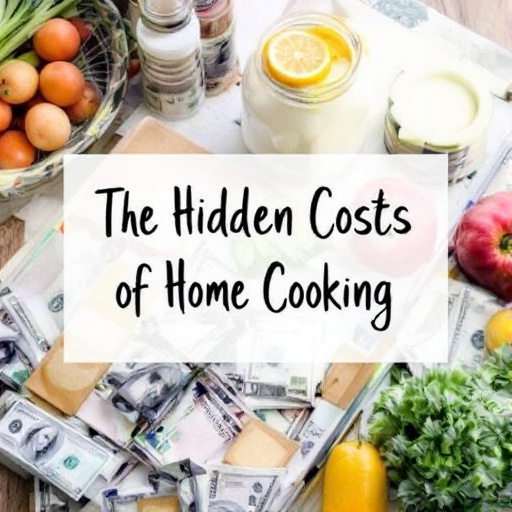Featured Articles
- "Beyond Excel: Unconventional Tools Revolutionizing Home Budget Planning in 2023"
- Budgeting for Homegrown Happiness: How Urban Gardening Can Save You Money and Enhance Your Wellbeing
- "Mindful Spending: How Minimalism Can Transform Your Home Budget Planning Journey"
- "Mindful Spending: How Minimalist Living Can Transform Your Home Budget Strategy"
- Navigating the Mind: How Psychology Can Transform Your Home Budget Planning Process
"Beyond Excel: Unconventional Tools Revolutionizing Home Budget Planning in 2023"
"Beyond Excel: Unconventional Tools Revolutionizing Home Budget Planning in 2023"
In 2023, home budgeting has transcended traditional methods like Excel, embracing innovative tools that cater to diverse lifestyles and preferences. From gamified apps to AI-driven analysis, this article explores how unconventional platforms are changing the face of personal finance management.
Understanding the Budgeting Landscape of 2023
The world of personal finance has evolved dramatically over the past decade. According to a survey by Statista, 78% of Americans reported that managing their finances has become more complicated due to increased expenses and economic factors. With inflation rates peaking and new financial products hitting the market every day, conventional tools like Excel often fall short of helping individuals keep track of their budgets effectively.
The Rise of Gamification: Turning Budgeting into a Game
Ever tried turning your budget into a game? Well, welcome to the future! With budgeting apps like YNAB (You Need A Budget) and Qapital, managing your finances can feel less like a chore and more like an exciting challenge. YNAB focuses on giving every dollar a job, making it easier for users to prioritize their spending. Qapital, on the other hand, incorporates fun rules like saving spare change and creating personalized challenges, allowing users to save money effortlessly.
Case Study: Meet Sarah, the Gamified Budgeter
Sarah, a 25-year-old graphic designer from San Francisco, found budgeting tedious and overwhelming until she discovered YNAB. By playing “budgeting bingo,” where she had to match her expenses to her budgeted categories, she not only managed to save $1,500 in six months but also transformed her spending habits. "It felt like I was playing a game against myself," she said, grinning. "Who knew budgeting could be fun?"
The Role of Artificial Intelligence
As technology advances, artificial intelligence is carving out a new niche in budgeting tools. Apps like Plum and Clearing use AI algorithms to analyze spending patterns and provide tailored budgeting advice. For instance, Plum connects to your bank account, learns your spending habits, and suggests how much to save each week. A 2022 report from McKinsey highlighted that 66% of people found personalized financial advice to be a significant factor in positively impacting their budgeting strategies.
The Millennial Perspective: Embracing Change
Let’s turn to Alex, a 32-year-old accountant living in Austin. He’s always resisted using traditional budgeting tools, claiming they were too “old school.” However, after integrating AI-driven tools into his routine, he realized that personalized budgeting advice made a world of difference. "Plum helped me save without even thinking about it. It was like having a financial advisor in my pocket," Alex shared.
Community-Driven Platforms
Sometimes, you just need a little help from your friends—or a community, at least. Platforms like Mint and EveryDollar not only help users track expenses and set budgets but also build communities for sharing tips and strategies. Mint’s integration with a social feature allows users to compare their spending with friends, providing motivation and accountability. Imagine being able to see your friend save for that vacation you've been talking about while you stash away cash for a new gaming console!
The Accountability Factor
It's not just about comparing numbers; it’s about learning and connecting. Emma, a 40-year-old mother of three from New Jersey, found Mint's community features invaluable. "I often struggle to stay motivated, but seeing my friends’ savings goals pushed me to stick to my budget," she said. "It turned budgeting into a team sport!"
Subscribing to Financial Health: Budgeting as a Lifestyle
In 2023, the notion of budgeting has transformed into a lifestyle choice. Enter subscription-based financial services such as Truebill and Trim, which work wonders in simplifying the budgeting process. These services help users track subscription payments, automate savings, and even negotiate bills. After all, who doesn’t want to save a few bucks without lifting a finger?
Statistics: The Impact of Subscription Services
According to a 2023 study by Financial Pathways, individuals who use subscription-based budgeting services save, on average, $191 a month. These platforms allow users to cut unnecessary expenses and direct their finances towards more fulfilling pursuits—like that much-needed vacation or emergency fund.
Visualizing Your Financial Future
If numbers don’t resonate with you, maybe a more visual approach is what you need. Tools like Fyle and Tiller Money enable users to create visually appealing, interactive budgets that make financial planning engaging. With colorful graphs and charts, financial data becomes a dynamic experience. As a bonus, Tiller allows users to automatically populate their spreadsheets with data from their bank accounts, effectively merging the best of both worlds: spreadsheets and user-friendly design.
For Visual Learners
Jack is 30 and a passionate graphic designer. He was never particularly interested in budgeting until he stumbled upon Tiller Money. “Seeing my expenses in colorful graphs made me realize where my money was going. I felt like an artist crafting my financial future!” he exclaimed. Who knew budgeting could inspire creativity?
Integrating Budgeting with Lifestyle Apps
In an increasingly integrated digital space, budgeting doesn’t need to be a standalone activity. Apps like Strides and Athlytic combine personal finance management with overall wellness. Strides allows users to track long-term goals alongside daily habits—be it saving more money or drinking more water! By aligning financial goals with lifestyle improvements, users may find themselves more motivated to stick to their budgets.
Interconnecting Habits and Finance
Sarah, our favorite gamified budgeter, now uses Strides to track both her budget and fitness goals. “It’s wonderful to see how good financial habits can boost my overall well-being,” she said. “Now, I have an app that integrates every essential aspect of my life into one dashboard!”
Experimenting with Alternative Solutions
As we venture further into 2023, numerous experimental budgeting solutions are emerging. Take the concept of crypto-saving platforms like BlockFi or using apps that allow users to invest their spare change into cryptocurrencies. While these methods hold some risk, they encourage users to think outside the box and explore new avenues for financial growth.
The Crypto Experiment
Not everyone is sold on the idea of using cryptocurrencies for saving. Still, some innovative young investors, like 22-year-old Mike, are diving headfirst. Mike has been using BlockFi to dip his toes into the crypto market while saving. He tracks both his investments and savings within the same app: “It’s kind of like a game of risk, and I’m all for it!”
The Takeaway: Finding Your Perfect Tool
Ultimately, the goal of any budgeting tool is to empower individuals to take control of their finances. Whether you prefer the structured challenge of gamification, the personalized advice of AI, or the community accountability offered by social platforms, there's an unconventional tool out there that fits your needs. Financial independence is no longer just a dream—it's a reality that can be achieved with the right tools at your disposal.
A Final Note: Your Personal Finance Journey
As a 28-year-old financial blogger, I’ve witnessed firsthand how the tools we use can shape our relationship with money. Finding the right budgeting tool may require some trial and error, but the payoff can be substantial. So, grab your smartphone and start exploring these unconventional budgeting tools today! Your future self will appreciate the effort.
In conclusion, as we approach 2024 and beyond, let’s embrace the transformation occurring within the budgeting landscape. With so many options available, remember that effective budgeting is about more than just dollars and cents—it's about creating a lifestyle that empowers you to thrive financially. Welcome to the new age of budgeting!




